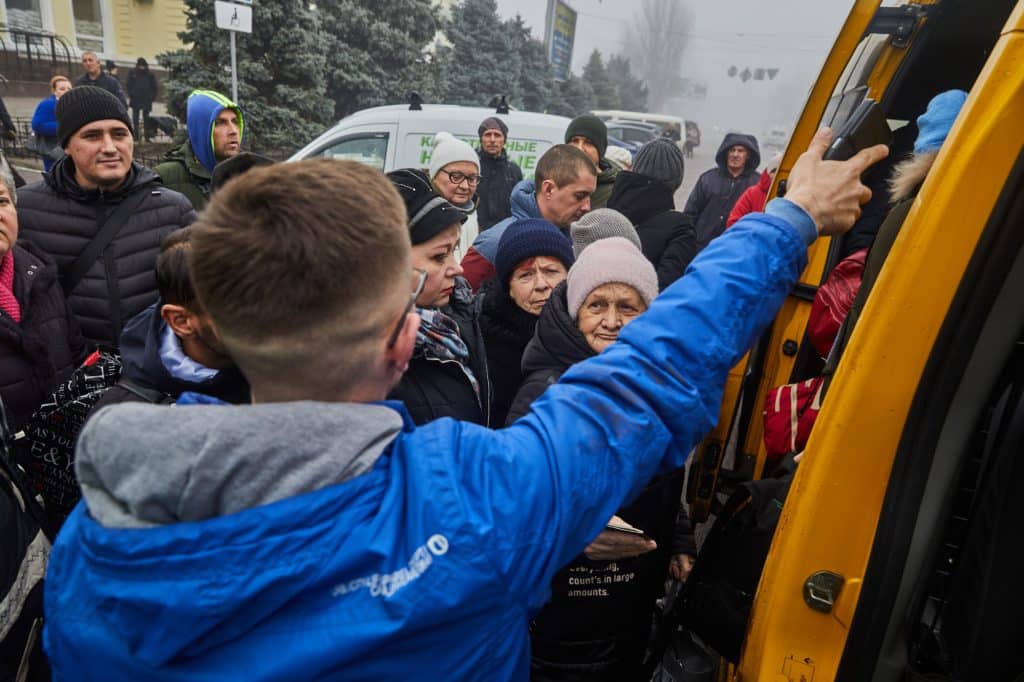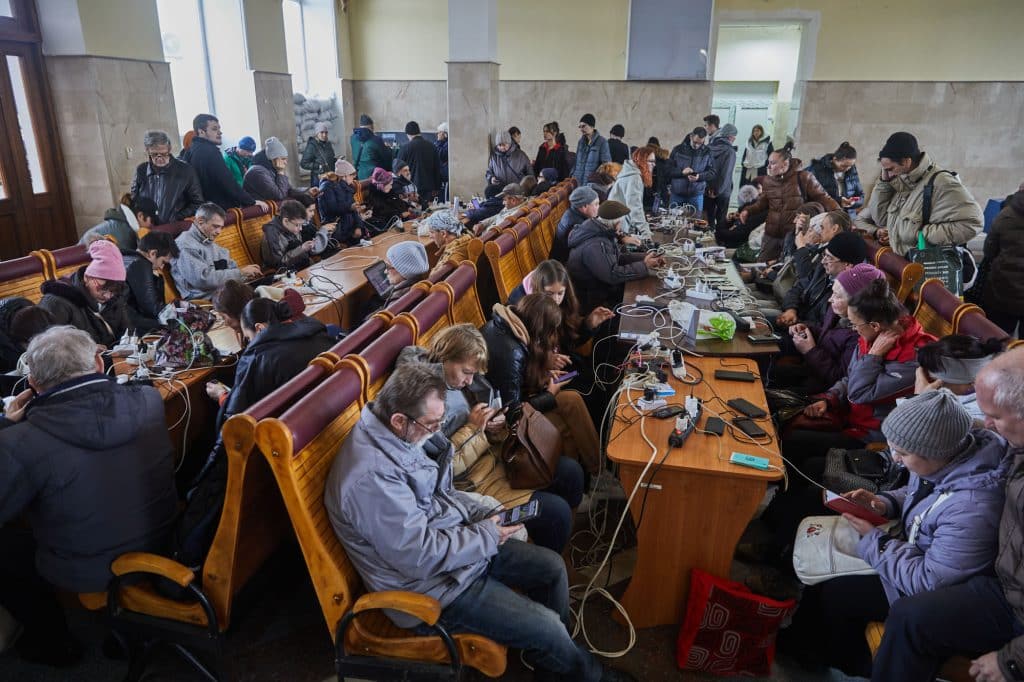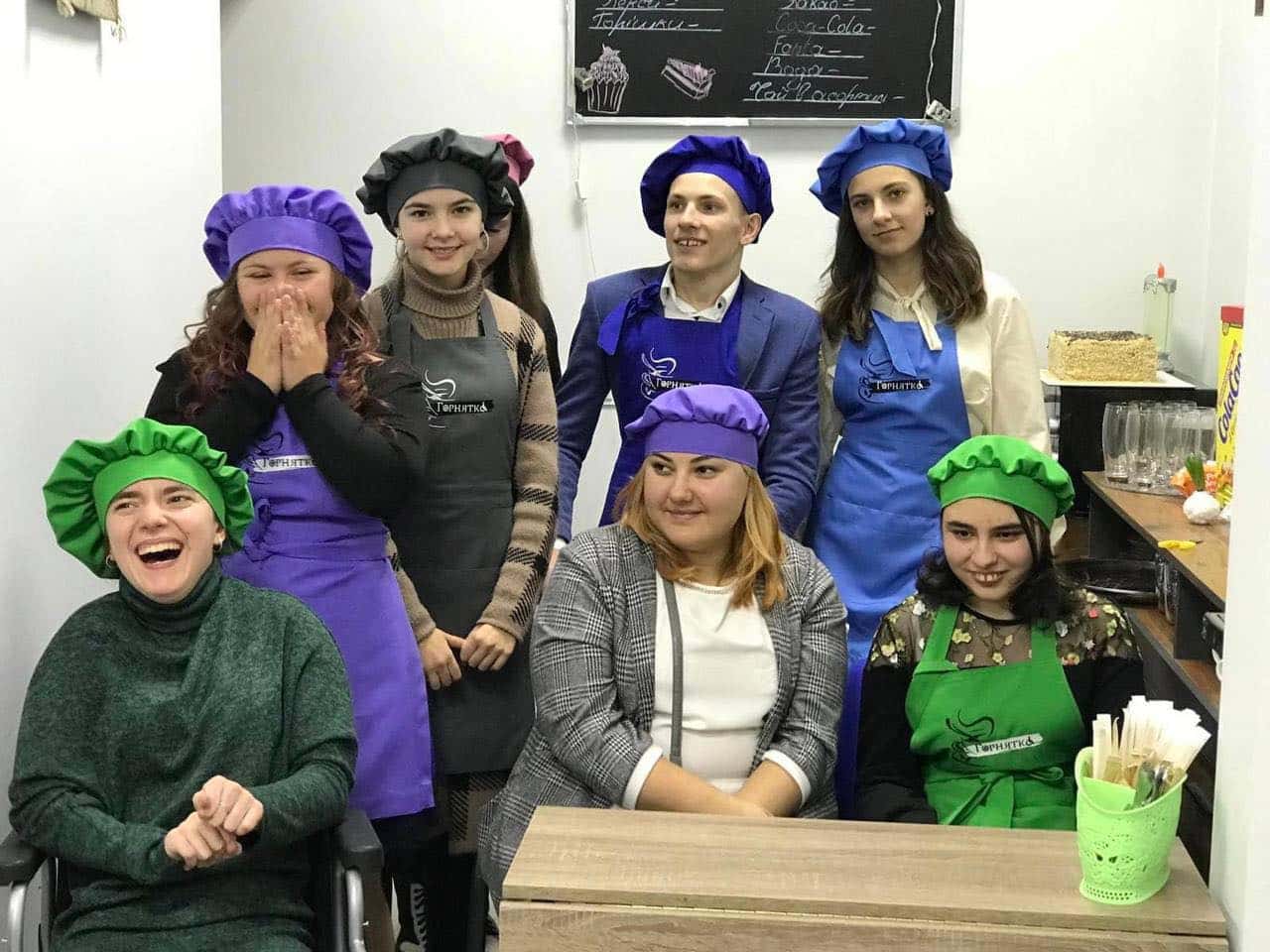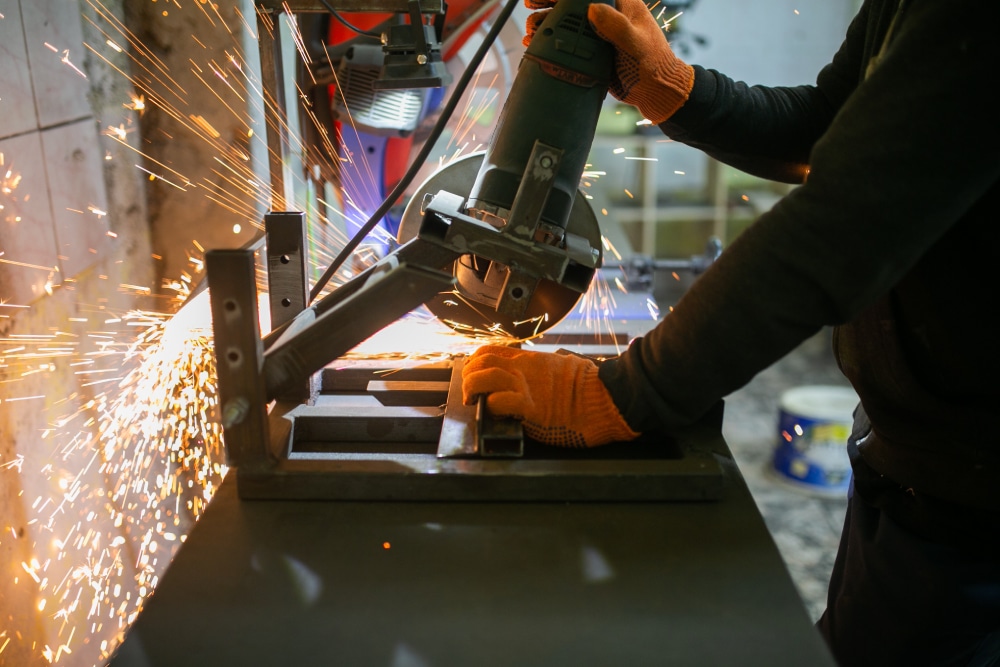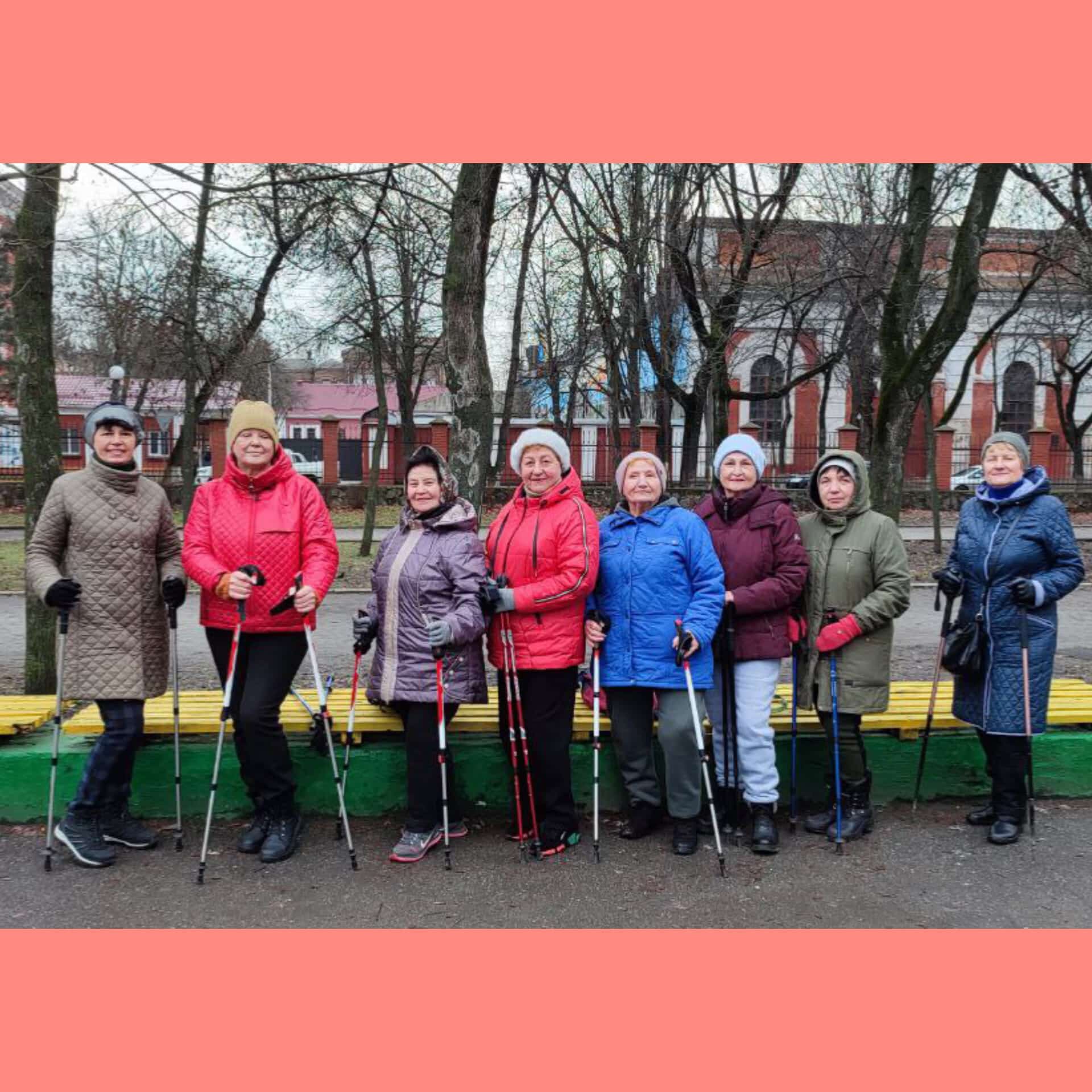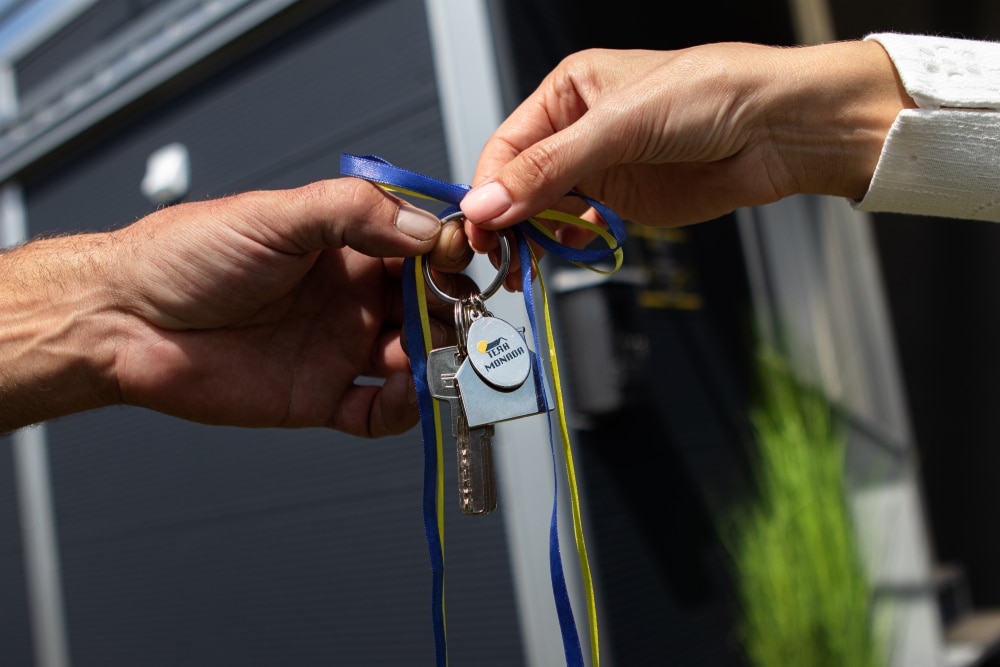A photo report by Oleksandr Khomenko about how the volunteers work in Kherson at the moment, what needs they address and what Kherson residents lack most of all.
In Search For Light
If one suddenly finds themselves in Kherson, from a first glance it might be not that easy to understand why it is fairly impossible to live here comfortably. It might be hard to understand it until one sees closed stores and long lines of people waiting to get access to water and electricity. After eight months of occupation, the city was left without water, electricity, and heating.
But it is still quite pleasant to go for a walk in the city during the day. The people here are mostly very friendly and sincere. Despite all their problems, they are happy that the city was de-occupied, and they’re convinced that everything will be alright soon.
But when the evening comes the city turns into a dark and desolate desert. One from Kyiv can spend just a few days in Kherson under these conditions and the problems of the capital with its emergency power outages and cuts would seem to be just an inconvenience. However, it’s a mental trap as there are no bigger and smaller problems.
After sundown, the city gets empty pretty quickly, and only on the central Freedom Square and near the railway station smaller groups of people can be seen. The Square is the main spot where one can get volunteers’ help. While the railway station is the only building in the city that has a constant electricity supply. People can always charge their phones and gadgets here and just spend some time with the light.
The first to enter the newly liberated territories after the soldiers are usually volunteers and journalists. And there are a lot of both volunteers and journalists in Kherson at the moment.
Generally, volunteers visit every city’s neighborhood, not just the city centre. Locals usually hear about their arrival through word of mouth, as nowadays it’s almost the only way to communicate in Kherson (mobile coverage was restored not everywhere yet).

A big truck is parked on Freedom Square, and there is a long line of people near it. Volunteers are patiently handing out meat packages. They are quite attentive and they notice if someone tries to get the second package, and they refuse such individuals.
I am talking to a lady who is a representative of an international company that has delivered food to Kherson. She doesn’t want to tell me who brought the cargo, however, the packages are speaking for themselves. The reason for such secrecy is security concerns. The organization regularly delivers humanitarian aid to the places where people need it, but the company prefers to not advertise their activity so that its trucks could make it swift and easy to their destination points. On that day, they delivered nearly 12 tonnes of chicken meat to Kherson.

A few cars are parked nearby where the people in military uniform are handing over humanitarian aid. A «Sofia» patrol police unit from Kyiv brought around 10 tonnes of product sets which include bread, kilograms of potatoes, some flour, sugar, oil, etc. And a volunteer territorial defense unit from the Desnyansky district of Kyiv unloads boxes with clothes from their vehicles. These volunteers arrived in Kherson for the first time, and earlier they’ve been delivering humanitarian aid to Kharkiv Oblast and to the city of Lyman.
Queues for humanitarian aid are never calm and organized, with some people trying to get their humanitarian before others, while others aren’t quite satisfied with what they’ve received, some people are with reduced mobility or with children, so they must make an effort if they don’t want to stand in the long line together with everyone.
Generally, all this turns into some sort of a shrill hum where it’s very difficult to distinguish separate full sentences. People are arguing about their «place under the sun» but luckily I haven’t seen any fights for humanitarian aid.


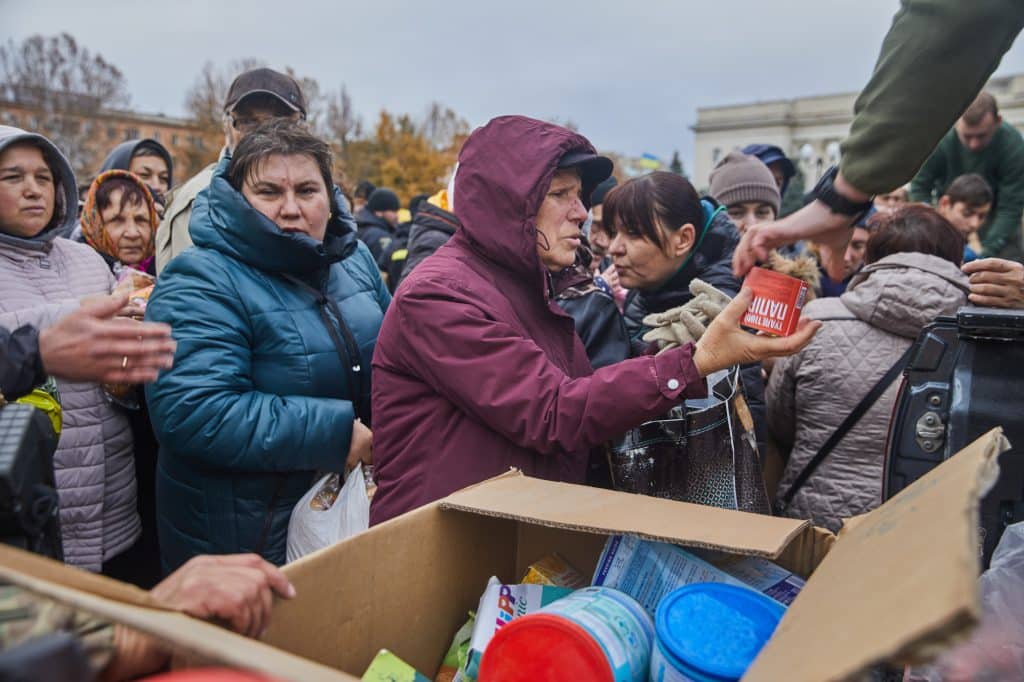

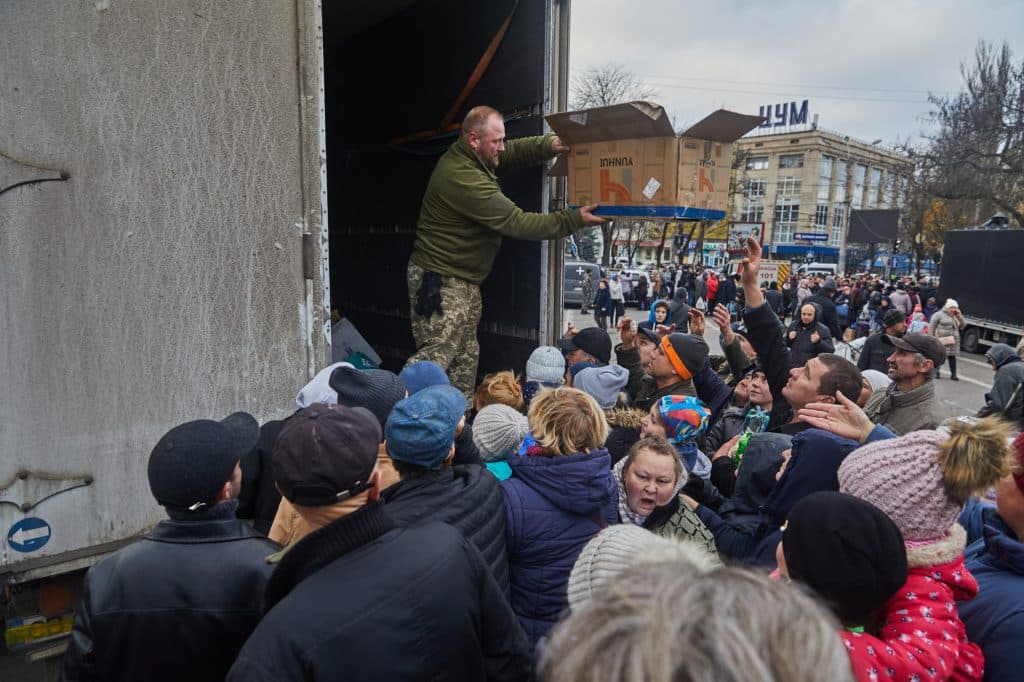
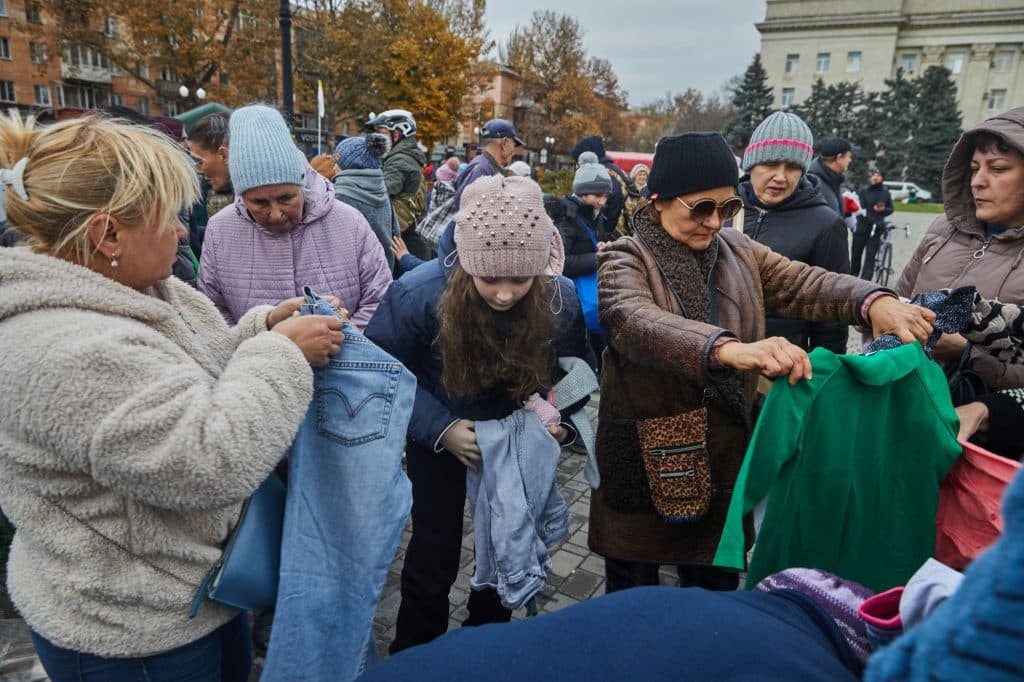
Regional activists are almost as active as the ones from Kyiv. Volunteers from the Khmelnytsky military administration together with the local business owners and public figures delivered over a thousand food sets with flour, oil, canned goods, vegetables, fruit, detergents and cleaning agents, as well as basic antiviral and refrigerant medicine. These packages are given to people only on appointment basis, and IDs are required.

One day there were the longest lines ever to get free SIM cards from Ukrainian mobile carriers. Kherson residents also could have topped up their accounts there as the majority of the stores in the city don’t work due to communications issues. A steady cellular connection exists only in certain areas of the city, and the situation with the mobile Internet is even more complicated. The city authorities are trying to improve the situation by setting up several hotspots with access to Starlink Internet throughout the city.
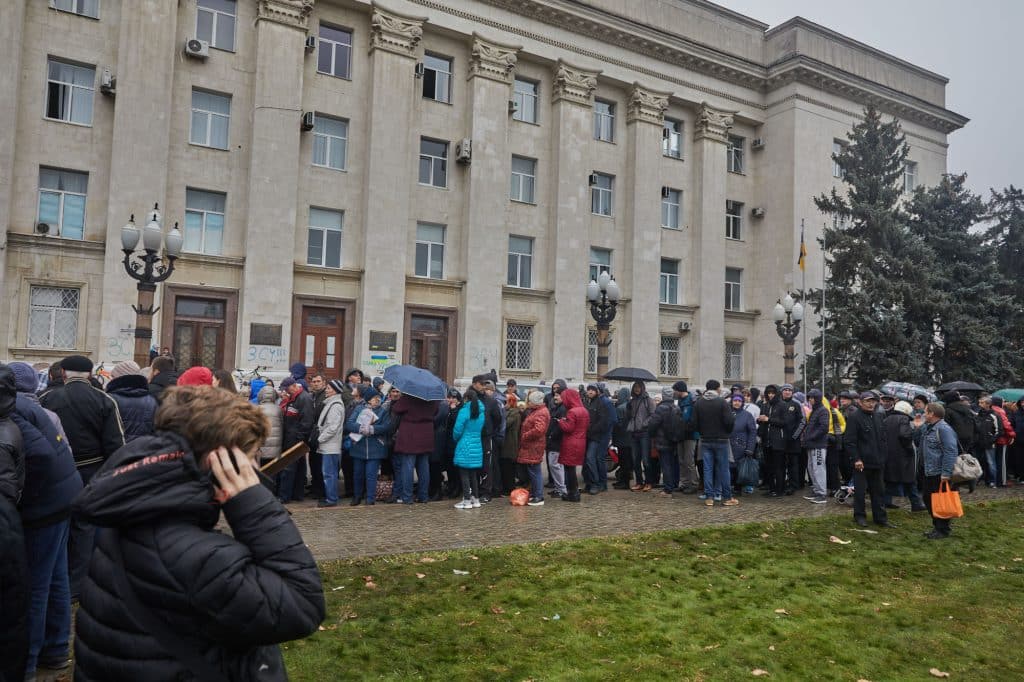
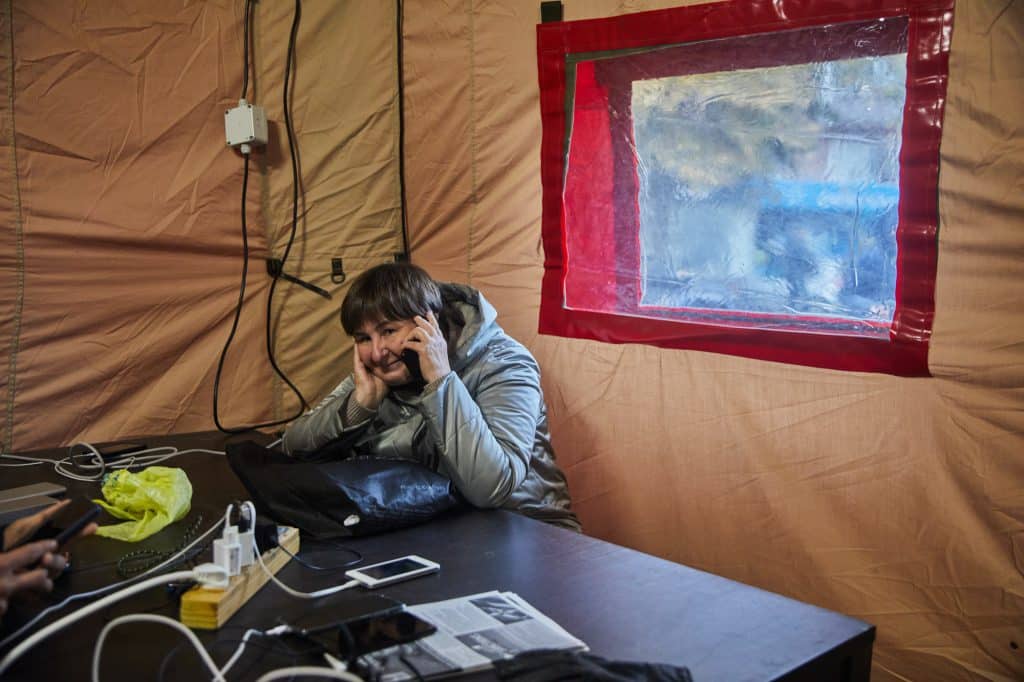
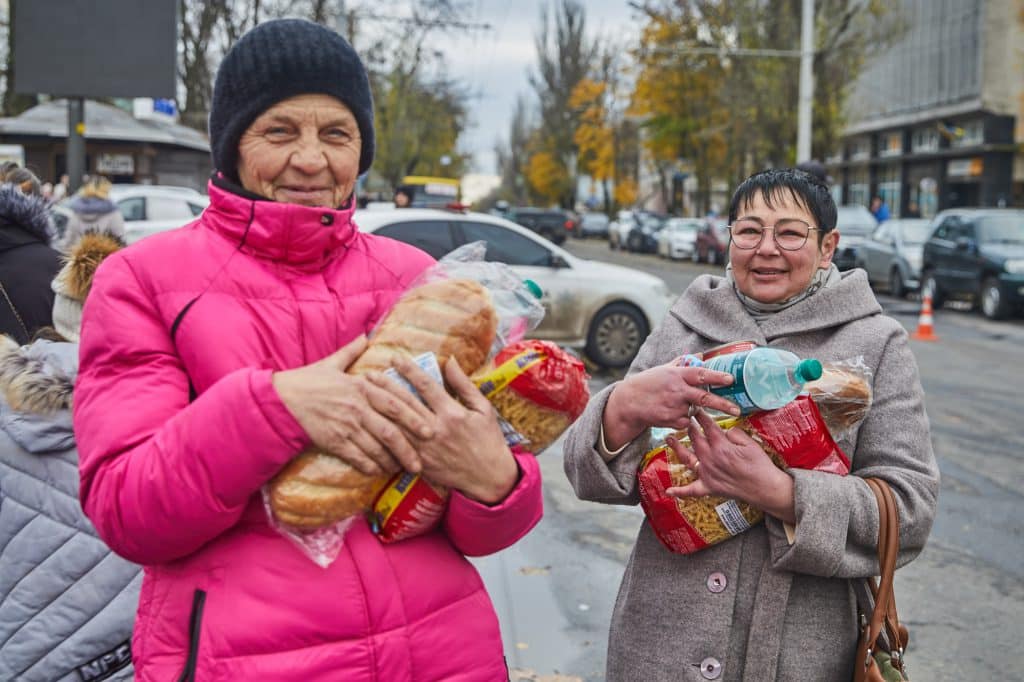
Drinking water is another type of help that volunteers provide Kherson residents with. Some deliver it in cisterns, the others distribute bottled water. I saw people rolling huge 18-liter bottles with water on the central street, pushing them with their feet. These water bottles were received from the volunteers too.
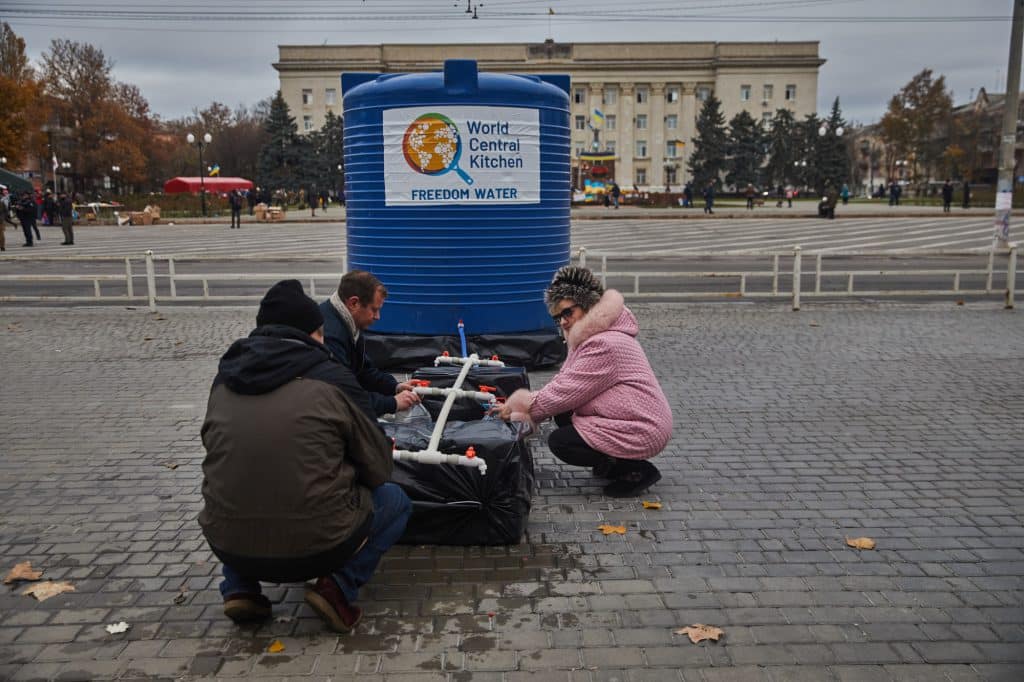
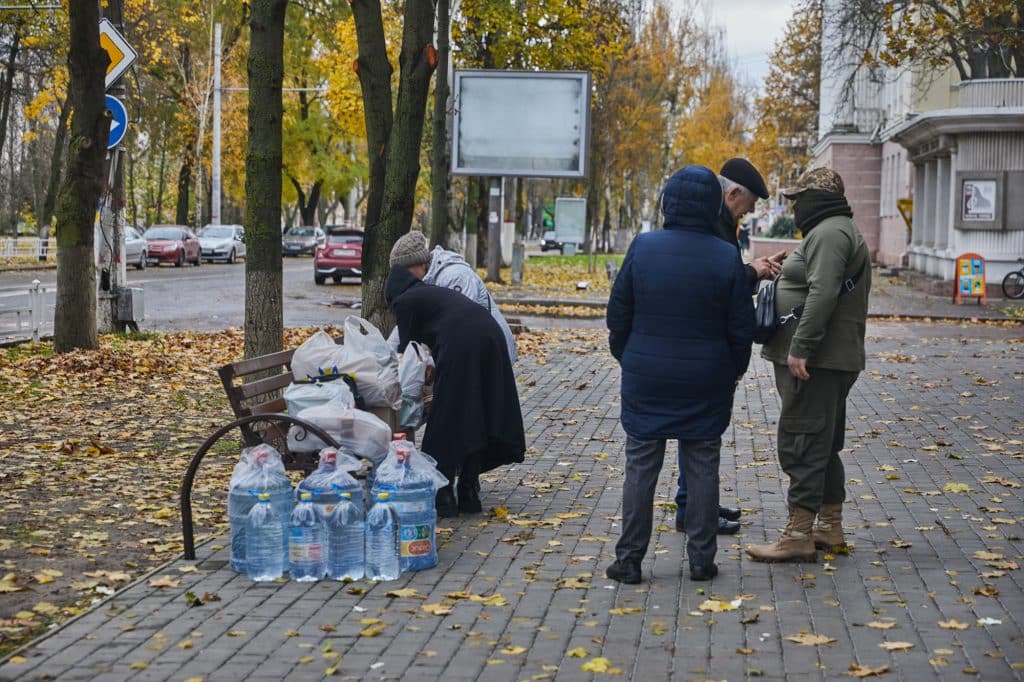
The help that Kherson residents are getting is not just of a material kind. On 18 and 19 November musicians of the «Cultural Forces» visited Kherson, among them were rapper Yarmak, guitar player Kolya Serga and violinist Moisei Bondarenko. They performed several times on the city’s central square.
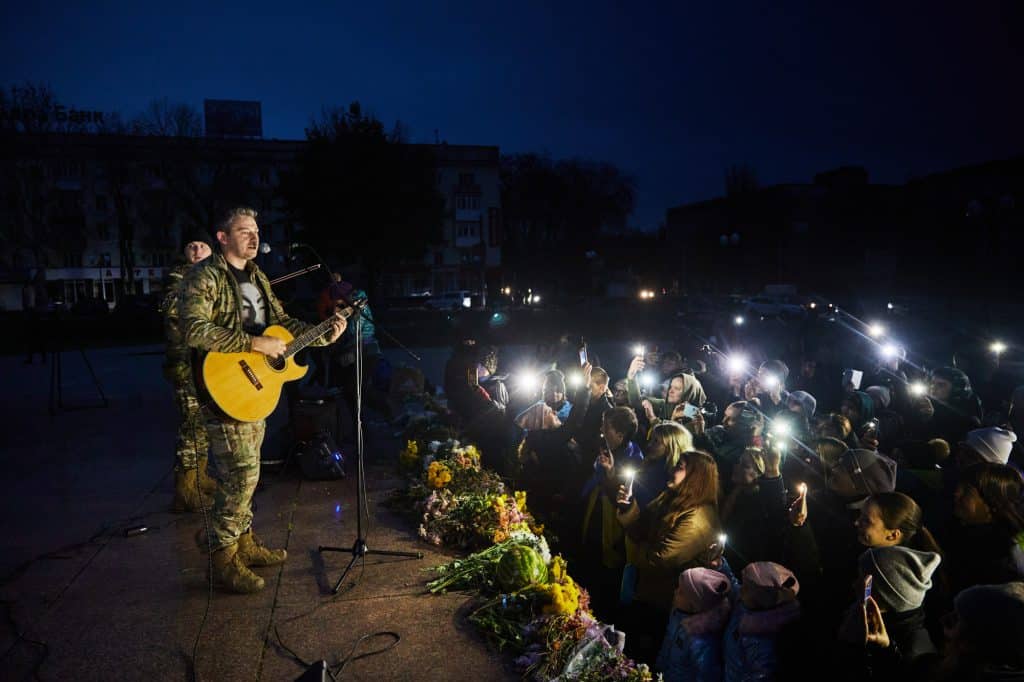
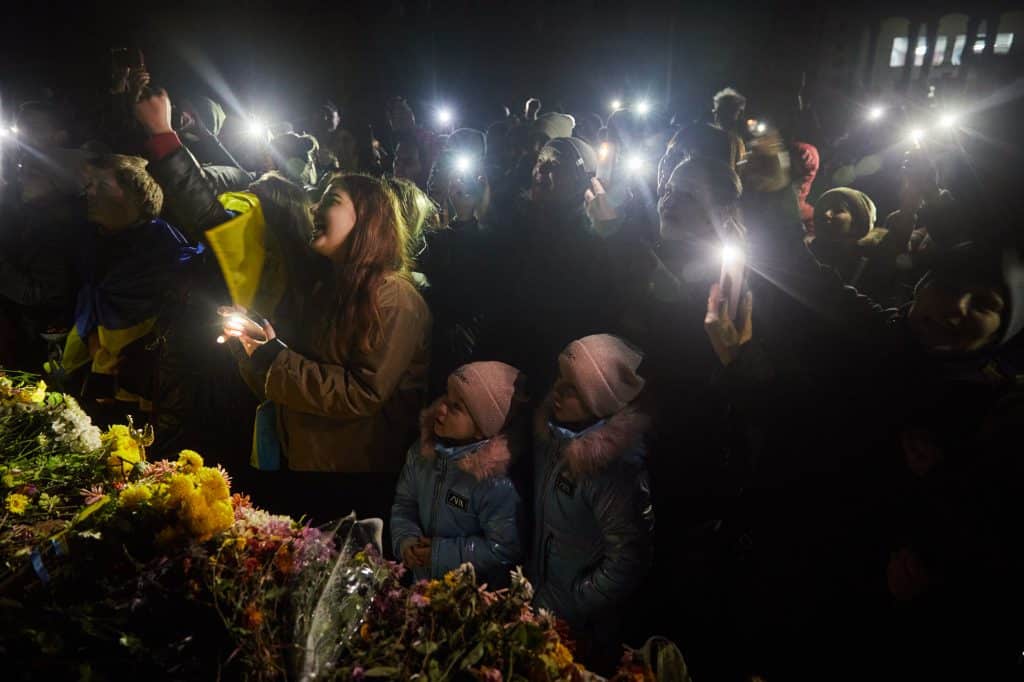
Along with the smaller volunteer organizations, a lot of international organizations are also involved in helping Kherson residents. The UN together with the humanitarian «Proliska» mission organized the distribution of warm blankets in the city centre, as well as flashlights and personal hygiene items. However, someone in the line claimed they’ve seen someone selling these flashlights later on the city market.
«Russians would give us humanitarian aid only once a week. So you would need to come in the night and claim your spot in the line, and then you’d receive your humanitarian help in the evening of the next day, at around 5-6 p.m. When I was discharged from the hospital I was given a list of prescription medicine, there were 8 or 9 names on that list. I was running all over the city, looking for volunteers to help me, for the «Red Cross». And only after 11 days, I managed to get from them some medicine. They gave me ten pills of the two drugs on my list, and two more capsules of the third drug,” a man tells about life in the occupied city while standing in line for the warm blankets.
«Doctors Without Borders» («Médicines Sans Frontières») also work in Kherson, providing patients with physical examination and essential medicine.
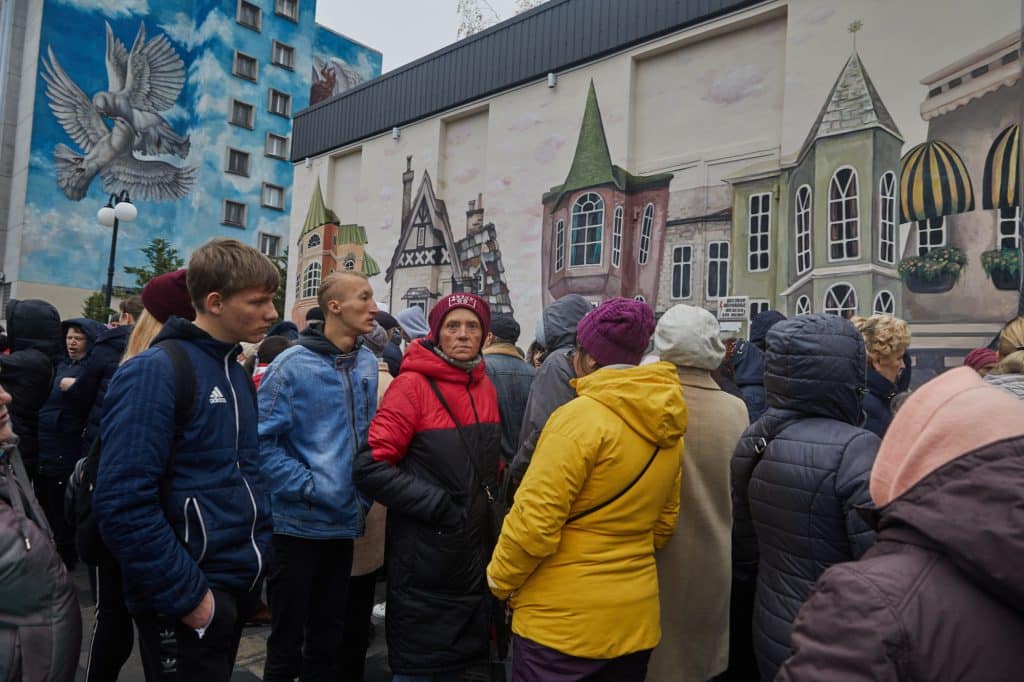
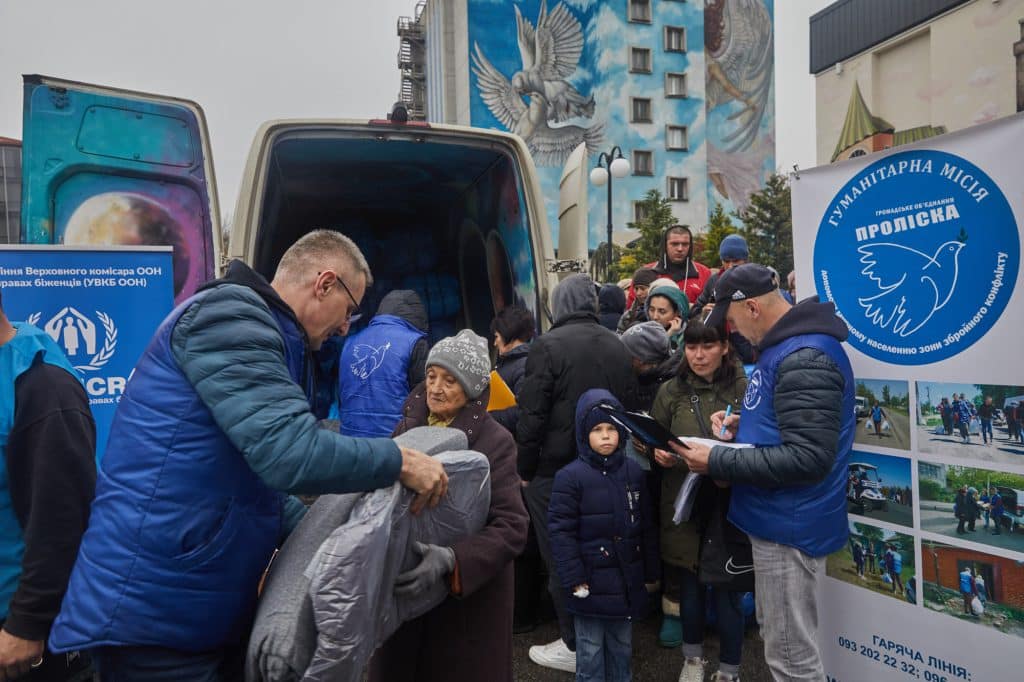
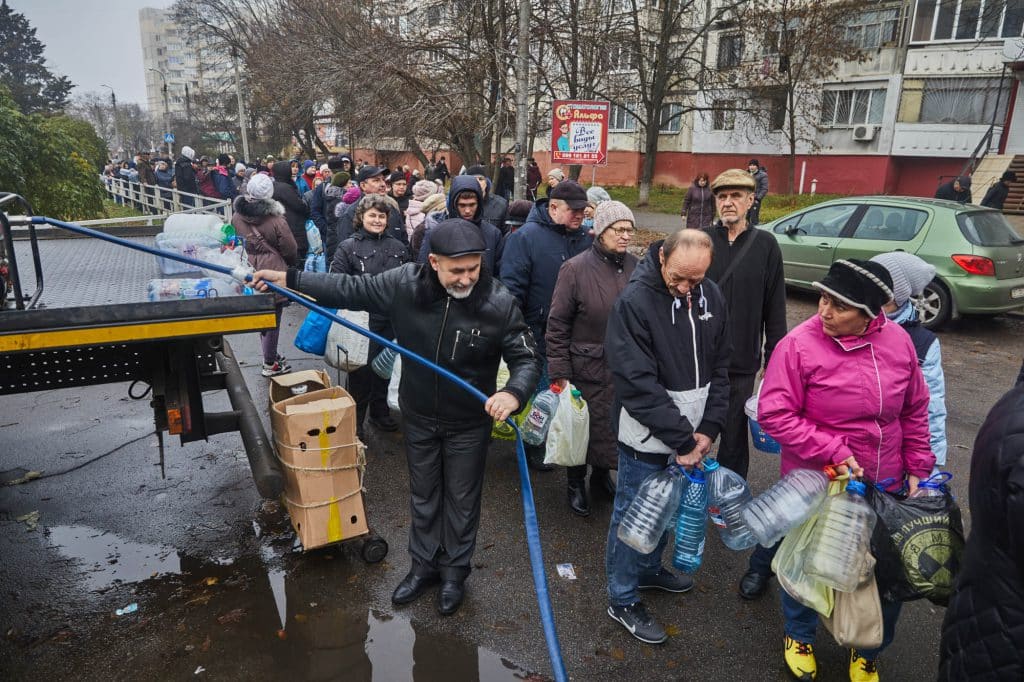
«There is a territory of Ukrainian language here! Not Russia!». People in Kherson and even far beyond the city know Serhii Chudynovich, a Ukrainian Orthodox Church priest, very well. He would repeat these words multiple times while charging the phones of his parishioners. He is very direct in his manners, which seems to be a bit unusual for a person of his position, so he reminds me more of a military man. He often scolds his parishioners for lack of discipline, but they are already used to it because they know very well that this rudeness is only a façade, and that a very kind delicate soul is hiding behind it.
After Kherson was occupied, he continued his activity, until Russian soldiers detained him on 30 March. They held him in detention for one day only, but Serhii Chudynovich can feel the health consequences of that detention till now.
«You are a saboteur. You were pronounced dead, so we will start cutting you to pieces now. If you won’t give us the names we need, we will rape you with a baton, then we’ll put some Finalgon on the ripped tissue, and you’re done,» that was what the Russian soldiers were telling him.
They took off his pants and started running the baton along his body. When Chudynovich started screaming in response, they asked him, «So what, you aren’t a saboteur after all? Will you sign the papers then?». Father Serhii had to sign a paper about cooperation but he didn’t communicate with Russians anymore, and when the opportunity presented itself he headed to Mykolayiv as a volunteer.
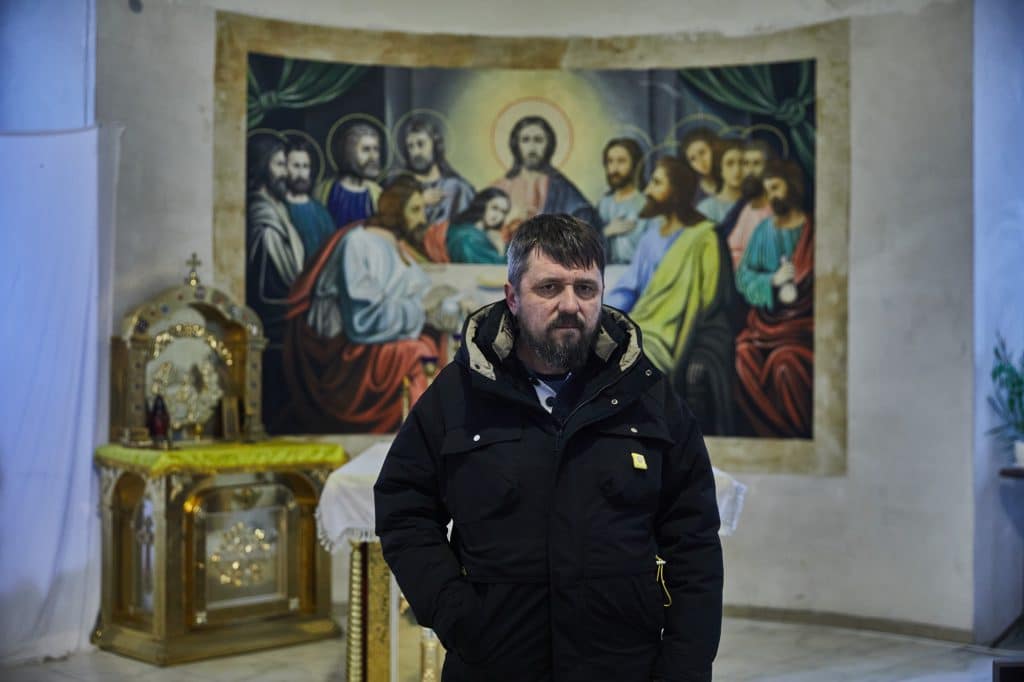
In de-occupied Kherson, Serhii Chudynovich is mostly busy with charities. Right before our conversation, he had a mess in his native Cathedral of the Holy Protection of the Mother of God.
«Our church is involved in a lot of activities, including food and even parish coffee,» Father Serhii says. «We have a hairdresser salon, we have a medical office there where people can get palliative and psychological assistance. Here is a copy machine that volunteers brought, so we will be doing documents copies for people, they really need it.»
The church is even trying to help with some prescription medicine which is one of the biggest humanitarian problems so far that is not quite resolved by the volunteers yet.
But there are always not enough donations for humanitarian activities. In addition to that, it is often quite difficult to predict how many donations they’ll receive tomorrow. Local businesses don’t help a lot, so the donations are mostly private.
«If only I knew how much money I’ll get as donations I would buy two generators instead of one. We also need to get a couple of laundry machines for people, we need the simpler ones so that the generator could handle them. To be honest with you, I don’t have enough funds at the moment,» Father Serhii says while we enjoy tasty parish coffee. He is a big fan of this drink, but he never forgets to share it with others.
«One should always give the best to God,» father Serhii smiles. His Cathedral of the Protection of the Mother of God is located in the Korabel district in Kherson. Due to its proximity to the Dnipro river, the church was often under Russian bombings and shelling. But that doesn’t scare people in need.
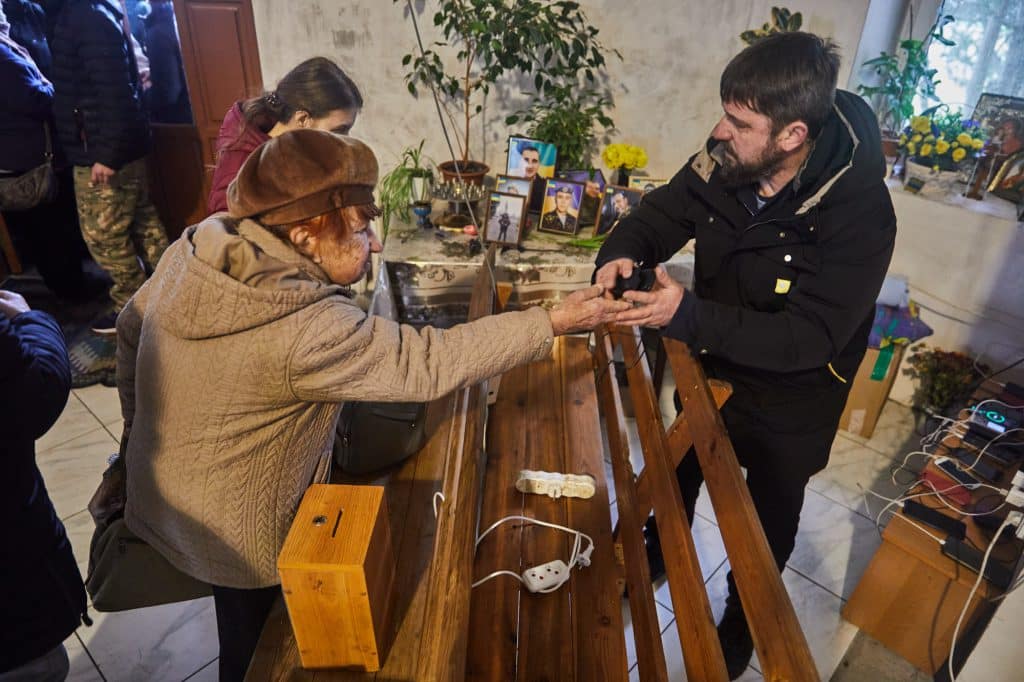
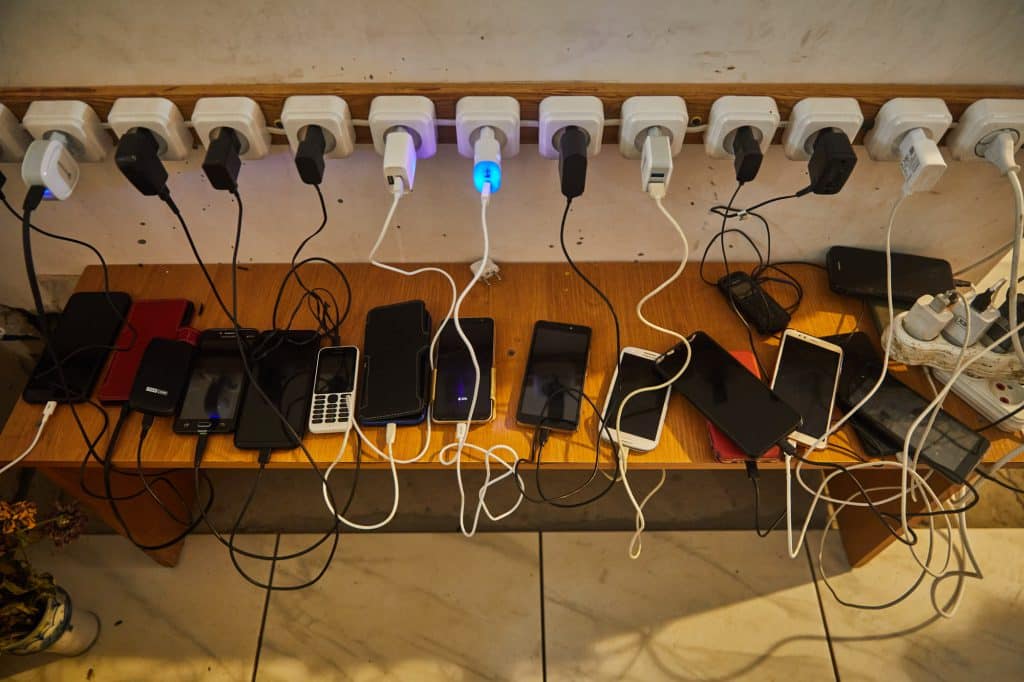
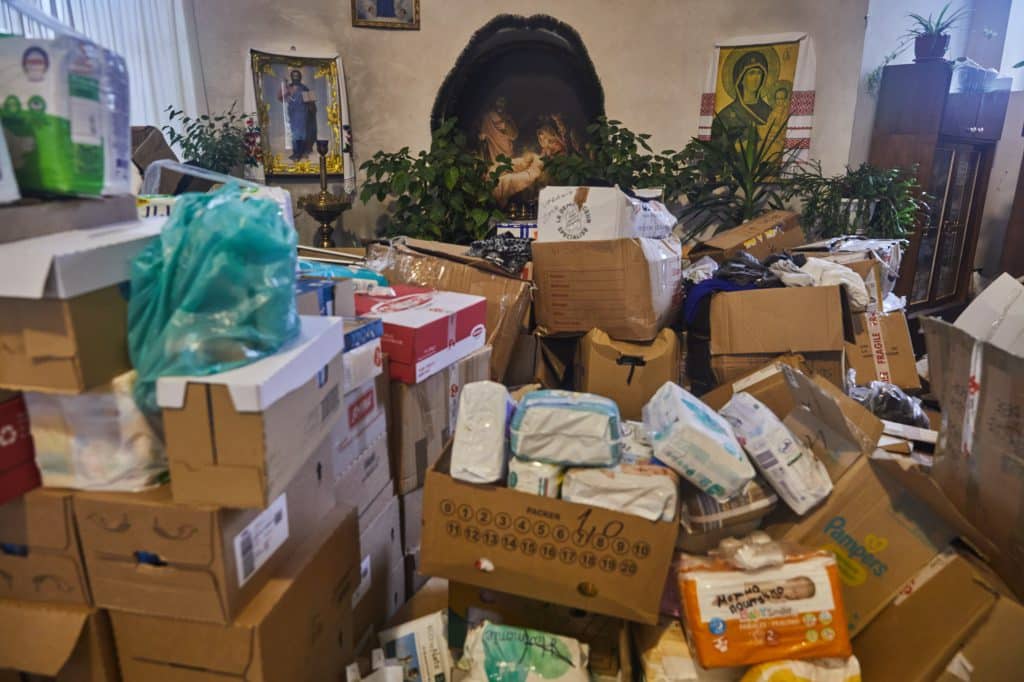
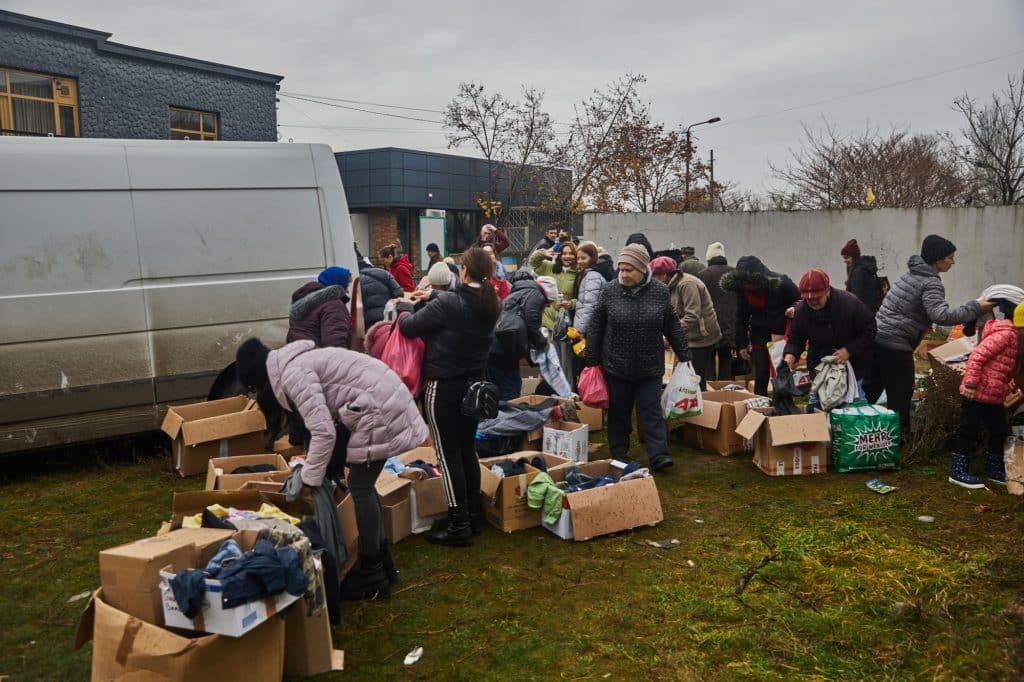
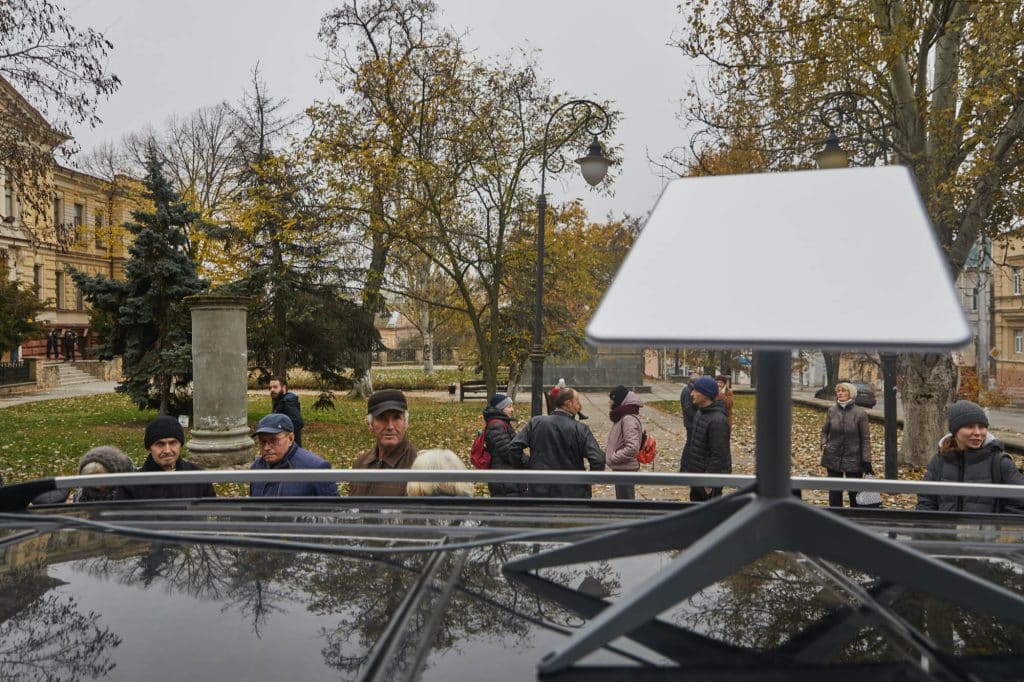
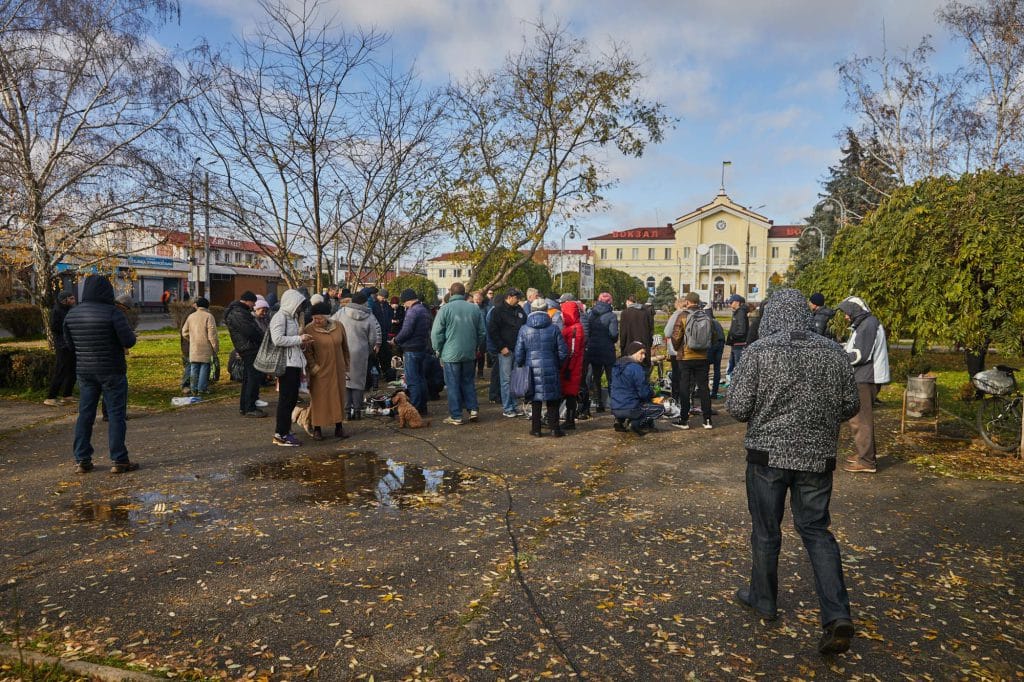
People are happy the city is liberated. But Kherson’s return to normal life is too slow. The majority of the stores don’t work. There is only one bigger supermarket chain that opened its stores in the city a few days ago. It was a huge event for many people. In addition to that, the city is being shelled by Russians more and more frequently now. Under these circumstances, more and more Kherson residents are trying to use any opportunity to evacuate, and de-occupation made it possible.
As of today, people can evacuate from the city after leaving their evacuation request in the organization that is responsible for evacuating people, such as Help People. One can leave either with bus or train. Luckily, Ukrzaliznytsya (Ukrainian Railway) has restored the railway connection with Kherson recently.
